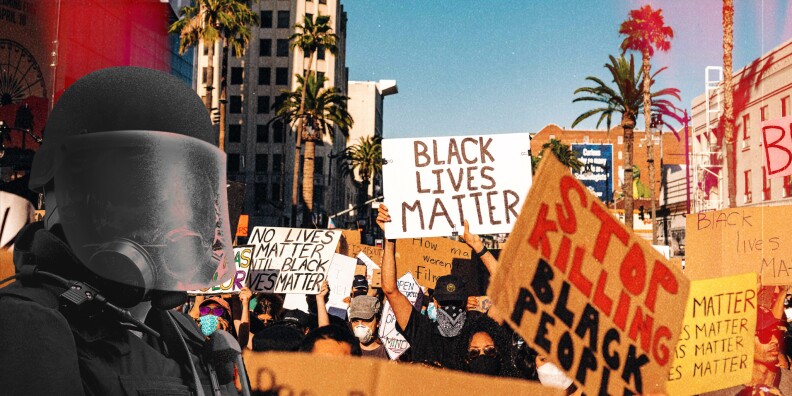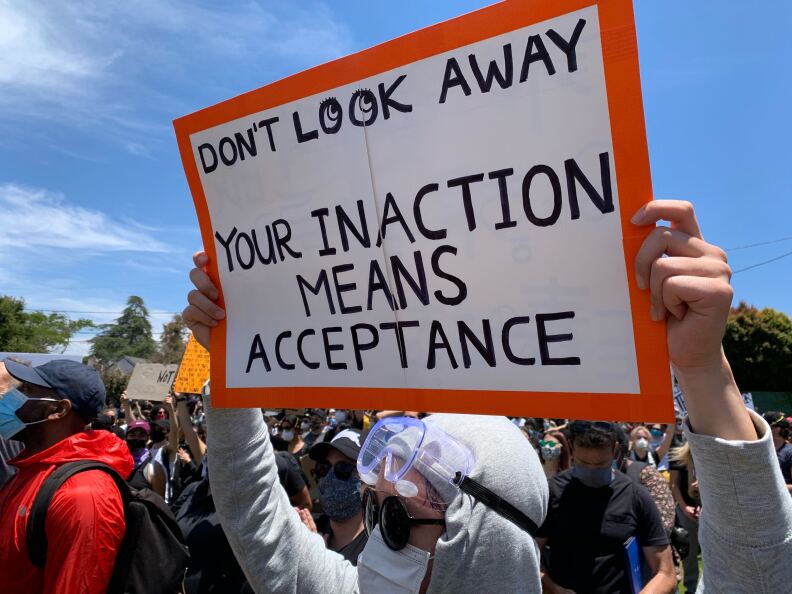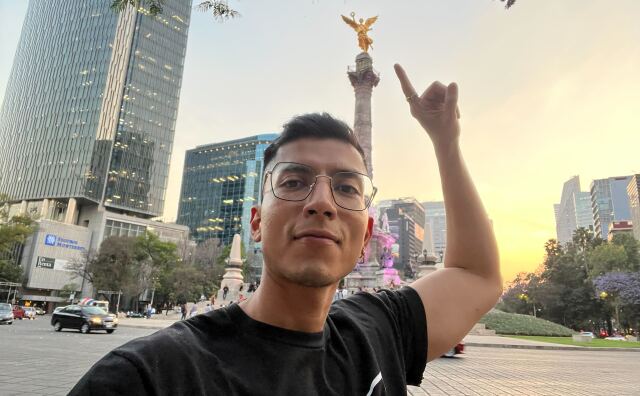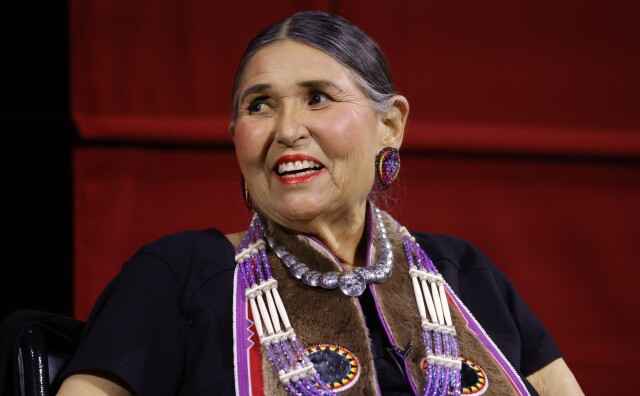May 25 marks one year since George Perry Floyd Jr. was murdered in Minneapolis, ostensibly for being the wrong color at the wrong time.
One year.
Damn.
I’m not sure I even know what that means anymore.
-
From June 2020 to July 2021, we published your stories each week to continue important conversations about race/ethnicity, identity and how both affect our lived experiences. We now have a new series Being American, which is again soliciting your essays.
-
Read:
Pandemic time has been tough to track. As a result, I’ve found myself quantifying time not by months, but by watershed moments that have irreversibly altered our national psyche.
By that measure, George Floyd was murdered precisely one George Floyd ago. His death shook the conscience of our pandemic-stricken nation, and set many of us on a path of self-reflection unrivaled by any single event in recent memory.
The fires that lit the night skies in the wake of his killing illuminated the arduous path we must traverse if we are ever to mend our nation.

There’s no going back now — that much we know.
But the reawakening of our better angels has, as of yet, yielded surprisingly few legislative victories.
Democratic Rep. Karen Bass (CA) was the first to try with the George Floyd Justice in Policing Act of 2020. Among other reforms, her bill sought to limit qualified immunity, a doctrine that has protected officers from civil suits for more than five decades. A Democratic-held House of Representatives passed the measure precisely one month after Floyd’s murder, knowing full well it faced a snowball’s chance in the Republican-held Senate.
Somewhat predictably, Senate Republicans, led by Republican Tim Scott (SC), advanced a policing bill of their own that, for all its merits, lacked the teeth and substance they knew their Democratic colleagues' constituents demanded.
To this day, it’s not clear to me whether Scott’s JUSTICE Act was an earnest attempt at bipartisan reform. Perhaps it was a failsafe to which Republican lawmakers could point so they could tell Fox News watchers that they tried and that the “liberal mob” was simply too radical. We’ll never know for sure.
Ultimately, both parties resolved to settle their differences at the ballot box, and the 116th Congress punted both bills. Rep. Bass is trying again with hers this session. It’s currently in committee. In short, at the federal level, there is still nothing.
California activists hoped state lawmakers would have better luck; they did, but not by much.

Last fall, just three days before America’s sitting president announced he’d contracted COVID-19, Governor Gavin Newsom signed into law a meager slate of police reform bills. The most aggressive proposals never made it to his desk.
While many remain hopeful that the current session will produce more substantive changes, it is so far abundantly clear that police unions still have a lot of pull in Sacramento — grassroots activism confounded by politics as usual.
To channel Joe Pesci's character in “Casino,” “Always the dollars. Always the f***ing dollars.”
So how far have we come since George Perry Floyd Jr. breathed his last breath under the knee of a man who had sworn an oath to protect him?

Well, for starters, the man who killed Floyd can expect to spend many of his last mobile years in a metal and concrete box. The system worked, albeit only when the prosecution provided jurors with an avalanche of evidence. The social movement sparked by Floyd’s death and the subsequent media coverage likely played a part as well.
The absence of criminal charges in the killing of Breonna Taylor, Andrew Brown, Elijah McClain and countless others, however, leaves me skeptical that such a satisfying result is remotely replicable in the near future.
Still, it’s hard to deny that a change has come. The energy that flared after Floyd’s death has transformed into a questioning of — and a general disdain for — systems of oppression the world over.
Some of that energy has been directed toward the Middle East. As Israel has bombarded Palestinian settlements in its crackdown on Hamas militants, thousands of Americans have marched in support of Palestinian civilians, who have, by far, suffered the highest losses in the nearly two-week flare-up that came to a tentative cease-fire Thursday.

Meanwhile, amid a rise in anti-Asian hate crimes and incidents, Congress, in a rare bipartisan effort, passed the COVID–19 Hate Crimes Act, which President Biden has signed into law.
Where that activist spirit will be directed next is hard to say. But, as many of our elected leaders attempt to translate activist fervor into legislation, I’m heartened by the many people on the ground who continue to make their voices heard.
Undeterred by the lack of legislative progress, they plod on, filling our streets and our social media feeds with the names and images of those who have fallen victim to a colonial system, allowed to run rampant for far too long.
As the pandemic loosens its grip on our daily lives here in Los Angeles, many of us will slowly settle back into our “normal” routines, the obligations of which will undoubtedly siphon fuel from the George Floyd Movement. Unfortunately, it can’t be avoided.
The drudgery and even the gaiety of normalcy threaten to anesthetize our national conscience once again, rendering us deaf to the cries of the oppressed. We should not allow this to happen. Lives depend on it.
It is merely the end of the beginning of this critical chapter. Everyone must soon decide what part they are to play in the story unwritten, then steel themselves to the fight ahead.
Only you can decide how far the legacy of George Floyd will take us.
-
89.3 KPCC’s Austin Cross is the host of the early edition of All Things Considered and the podcast, Consider This.
-
Listen live on Tuesday, May 25, at 7 p.m. Pacific time when KPCC, along with public radio stations across California, will broadcast a statewide call-in hosted by Austin focusing on police reform around the state, as we mark the one-year anniversary since George Floyd was murdered by a now-former Minneapolis police officer.











